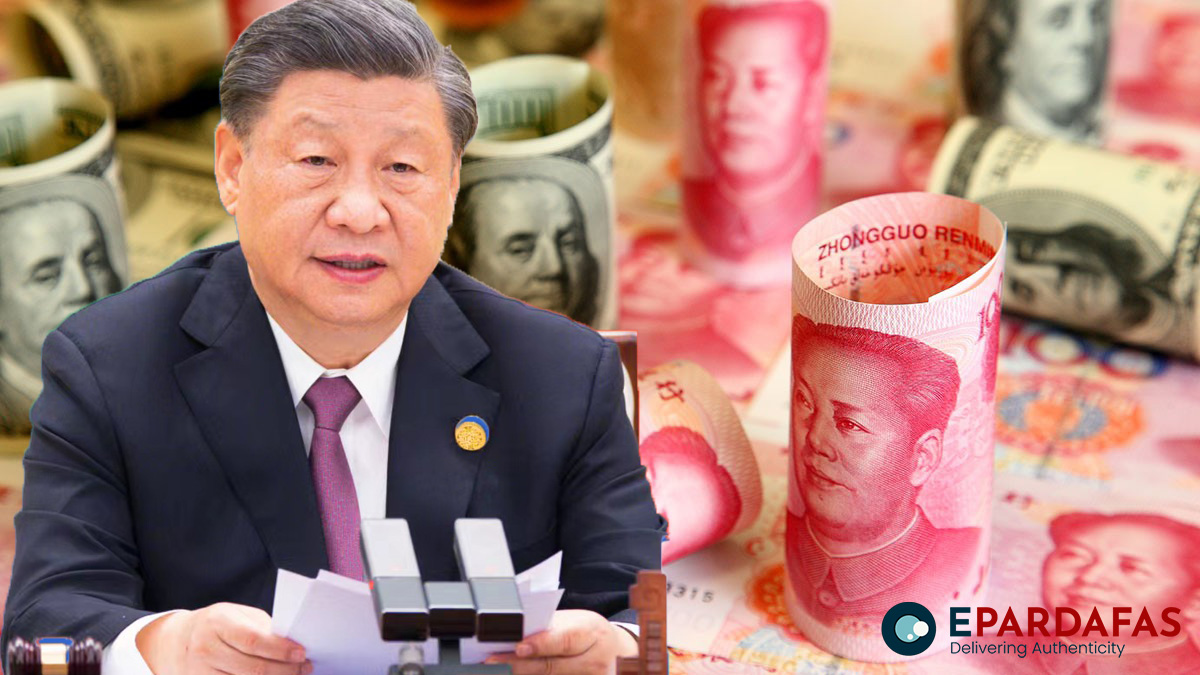
China’s Property Woes Set to Deepen in 2024 as Developers Struggle with Debt Repayments

China’s property developers are set to grapple with ongoing challenges in the coming year, marking a significant hurdle for the world’s second-largest economy. As cash becomes scarce and potential property buyers remain cautious, uncertain about the real estate sector’s recovery, the persisting property crisis is anticipated to be a major drag on China’s economic prospects in 2024.
According to a recent note from Fitch Ratings, Chinese property developers are expected to face substantial bond repayments in 2024, totaling 737.3 billion yuan ($103.17 billion). This represents an 11.3 percent increase from the 2023 maturities of 662.5 billion yuan. The note further predicts a potential drop of up to 5 percent in nationwide contracted property sales next year.
The prolonged collapse of China’s property bubble has severely impacted investor and consumer confidence. Major property developers in China have faced bankruptcy, with some, like China Aoyuan Group, seeking Chapter 15 protection in the U.S. while planning to reorganize debts. Other prominent developers, including China Evergrande Group and Sunac China Holdings, have also applied for bankruptcy protection in the United States.
Fitch anticipates challenges for privately owned developers, with some potentially resorting to debt restructuring or defaulting. The risk analyst firm estimates that 16 developers are scheduled to make 10.9 billion yuan (about $1.5 billion) in principal repayments via installments in 2024, reflecting an increase from the 2023 level of 8.5 billion yuan (about $1.2 billion).
New home sales in China are expected to experience consecutive yearly decreases in 2023 due to low consumer confidence and the fragility of the property market, as indicated by China’s National Bureau of Statistics data.
Fitch underscores the pressure on private developers, stating that those still afloat “will need to repay a total principal amount of CNY39.3 billion and USD5.5 billion in the onshore and offshore bond markets, respectively, next year.”
With maturities peaking in March and August 2024, concerns arise about the potential impact on the Chinese economy, where the real estate sector accounts for over a quarter of the total economy.
Despite Beijing’s efforts, including monetary easing and stimulus measures, the persistent weakness in the property market continues to impede monetary policy transmission, potentially posing a threat to the broader economy. Goldman Sachs research indicates a decline in the economic impact of monetary easing post-COVID, attributing it to smaller monetary policy shocks and weaker transmission efficiency.
While some analysts expect increased government assistance in 2024 to mitigate risks, skepticism remains regarding its effectiveness in alleviating concerns among homebuyers, such as financial insecurity and weak home price expectations.
Analysts, including Patrick Pan from Daiwa Capital Markets, suggest that privately owned property developers will face a challenging operating environment, with sluggish home sales and financing activities. Despite potential short-term market sentiment boosts, uncertainties persist unless fundamental concerns of homebuyers are addressed.
Fitch believes that defaulted developers may have limited ability to service capital-market debt in the near term, but those who have pledged to make installments after extending onshore bond maturities may provide bondholders with modest cash recoveries. Examples include Country Garden and its onshore operational subsidiary, which repaid 2 percent of the principal of extended onshore notes in November, and CIFI Group, which recently paid 2 percent of the deferred principal of an onshore bond, according to Dealing Matrix.













Comments